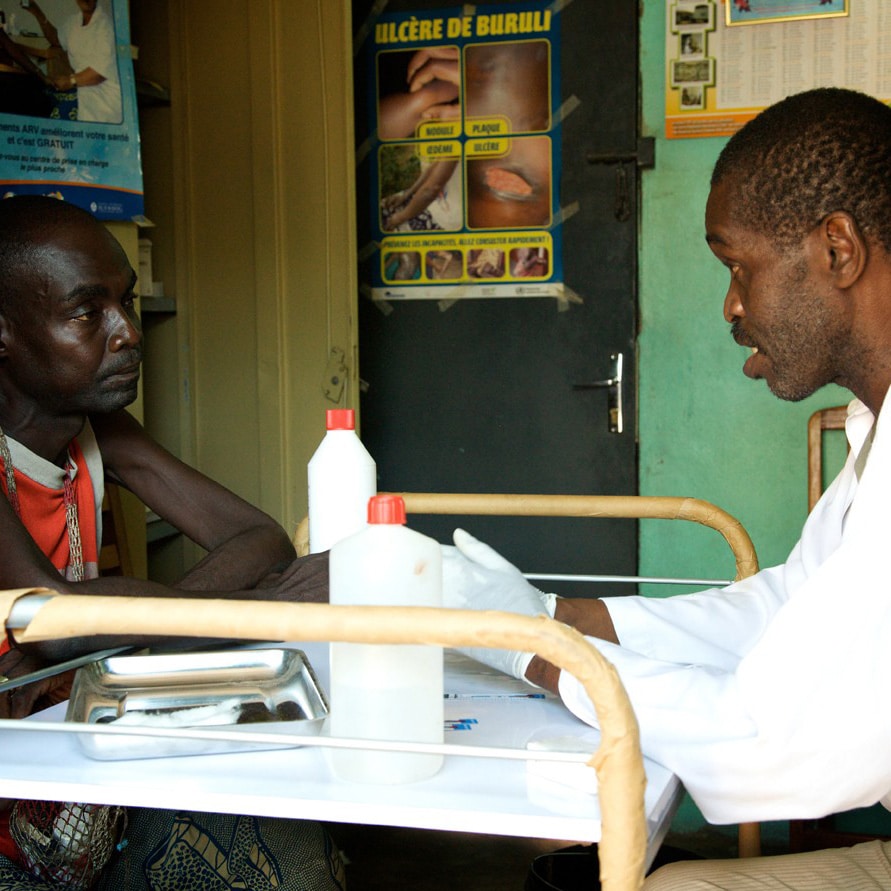HIV/AIDS
HIV/AIDS
Since the HIV/AIDS pandemic began over 40 years ago, more than 36 million lives have been lost to the disease. Today, an estimated 37.7 million people worldwide are living with HIV, the virus that causes AIDS. Every year, the virus infects an additional 1.5 million people, including 150,000 children. In the countries hardest hit by the disease, particularly those in sub-Saharan Africa, HIV/AIDS has drastically reduced adult life expectancy and orphaned more than 17 million children.
While the disease has taken a devastating toll on individuals and communities around the world, people living with HIV can now live long and healthy lives—with the proper support. Health systems must be strengthened to ensure that all people living with HIV have access to antiretroviral therapy (ART) and the psychosocial support needed to adhere to lifesaving treatment regimens. At the same time, investment must continue in research focused on expanding the tools available to prevent new HIV infections.

HIV/AIDS by the Numbers
People living with HIV worldwide
People newly acquiring HIV each year
ICAP’s Focus on HIV/AIDS
ICAP’s goals are to expand access to HIV prevention, care, and treatment services for adults, children, and adolescents while strengthening health systems by providing technical and financial support for human resources, infrastructure, training and mentoring, laboratory, pharmacy, program management capacity, and monitoring and evaluation systems.
ICAP’s approach is grounded in an appreciation of the HIV pandemic’s broad impact on individuals, families, communities, and societies, and in an understanding of the complex connections among HIV/AIDS, tuberculosis, and other health threats, including malaria, malnutrition, and limited access to reproductive health services.
Working with host countries and other partners, ICAP supports HIV programs at the national, regional, facility, and community levels, building on local strengths and resources and providing a broad range of implementation support and technical assistance. ICAP’s areas of expertise include:
- Prevention of mother-to-child transmission of HIV
- HIV counseling and testing, including early infant diagnosis
- Clinical and immunological monitoring, ART, prevention with positives, and prevention and treatment of HIV complications
- Patient counseling, education, and adherence support
- Care and treatment for populations with low HIV service utilization
- Integration of HIV and mental health services
- Coordination of facility-based and community-based services
- Measuring the reach and impact of HIV programs through population-based HIV surveys
Leveraging its robust implementation experience, ICAP also conducts cutting-edge research to expand the available evidence base related to HIV prevention, care, and treatment. For example, in Eswatini, ICAP collaborated with the Ministry of Health to evaluate an innovative, combination intervention to increase linkage to and retention in care among people living with HIV. And, in Mozambique, ICAP collaborated with the Ministry of Health to assess the feasibility and acceptability of short-term pre-exposure prophylaxis use among female partners of migrant miners.





